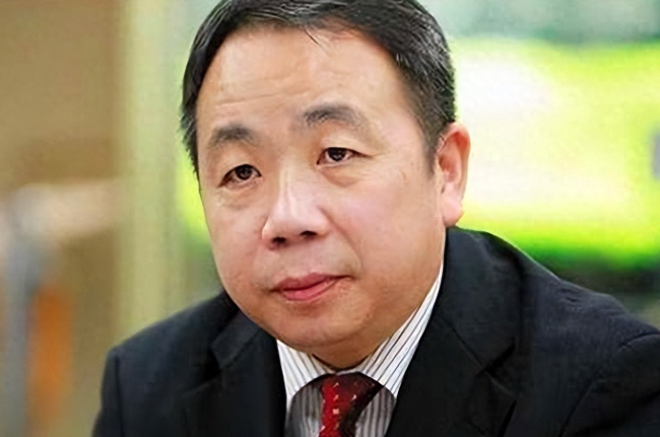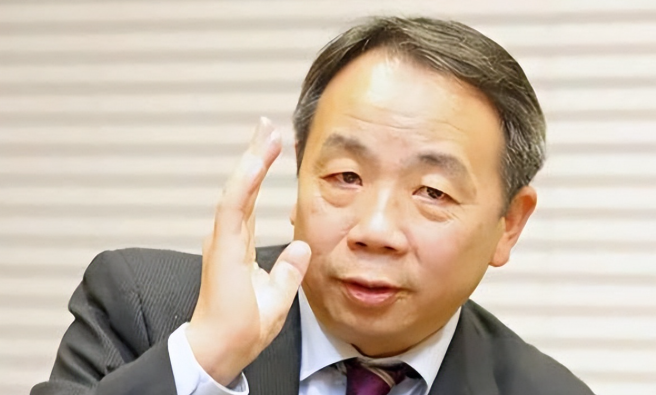On September 8, China’s Ministry of Foreign Affairs announced sanctions against Japanese lawmaker Ishihira Taro. In response, Ishihira claimed: “I have no assets in China, and I haven’t been back for more than a decade.”
But within hours, Chinese netizens launched a full-scale investigation. To his surprise, his luxury apartments, business ventures, bank accounts, and even a Mercedes-Benz were exposed online. The incident not only embarrassed him but also raised broader questions about his political journey and downfall.

From Beijing University to Japanese Right-Wing Politics
Ishihira’s story traces back to 1980, when he entered Peking University’s Department of Philosophy — a prestigious opportunity at the time. In 1988, he was sent to study at Kobe University in Japan as a government-sponsored student. Instead of returning to contribute to China, Ishihira chose a different path.
In 1989, he declared that he had “spiritually severed ties with China.” By 2007, he had naturalized as a Japanese citizen, adopting the name “Ishihira Taro.” He publicly demonstrated loyalty to Japan by visiting the Ise Grand Shrine and later became a frequent face in right-wing media.
Ishihira denied the Nanjing Massacre, called for Japan to acquire nuclear weapons, and repeatedly visited the Yasukuni Shrine. These radical positions helped him gain influence among far-right groups, but at the cost of severing all goodwill with China.

Rise to the Japanese Senate
In February 2025, Ishihira announced his candidacy for the Japanese Senate under the far-right Japan Innovation Party. Initially rejected due to his Chinese origins, he withdrew temporarily. However, by July, with media hype and street speeches, he managed to win a Senate seat. His first act as senator? A high-profile visit to Yasukuni Shrine — directly provoking Beijing.
This move, alongside years of inflammatory remarks on Taiwan, the Diaoyu Islands, Xinjiang, Tibet, and Hong Kong, made him a prime target for Chinese sanctions.
The Asset Revelation
While Ishihira insisted he had no ties to China, netizens proved otherwise:
- Real Estate: A luxury Beijing apartment worth tens of millions, two premium properties in Chengdu, and his wife’s apartment in Shanghai.
- Business: A company in Jingdezhen where he served as both director and general manager.
- Bank Accounts: Holdings in major Chinese banks with balances in the tens of millions. One investment product worth ¥6.8 million had matured in 2020.
- Luxury Car: A black Mercedes-Benz S-Class with a “triple 8” license plate.
- Travel Records: Evidence showed he entered China through Shanghai Pudong in 2019, contradicting his claim of not visiting for over a decade.
Even his clothes and shoes, worn during visits to the Yasukuni Shrine, were identified as luxury products from Chinese brands.

Sanctions in Action
China’s asset management systems quickly froze his properties, accounts, and vehicles. The Mercedes cannot be re-registered or insured. Attempts by his legal team to overturn the freeze failed due to airtight legal procedures.
Japanese publishers also began distancing themselves. His planned book release was canceled, TV appearances withdrawn, and even right-wing allies started avoiding him. As one Japanese politician remarked: “If he could betray his homeland, why would he ever be loyal to Japan?”
Netizens’ Victory
Chinese netizens celebrated the exposure as a “people-powered investigation.” Not only did they disprove Ishihira’s claims, but they also showcased the depth of China’s asset transparency systems. What began as a diplomatic sanction turned into a nationwide cathartic moment.
Today, Ishihira finds himself politically isolated, financially crippled, and reputationally destroyed — reduced to a mere “tool” discarded by both sides.

Conclusion
The fall of Ishihira Taro is a cautionary tale. For those who betray their homeland and exploit political extremism for personal gain, the consequences are inevitable. China’s actions delivered a clear message to the world: betraying one’s nation and colluding against it will only end in disgrace.
References
- Ministry of Foreign Affairs of China, September 8, 2025
- Publicly available asset and company registration databases
- Japanese media commentary on Ishihira Taro



